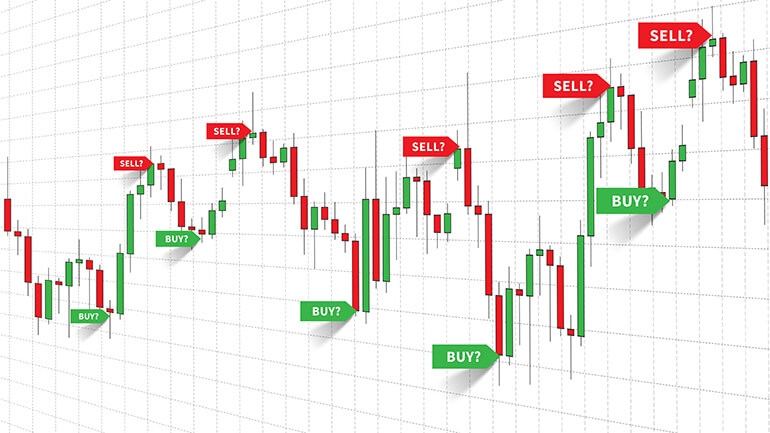It is beyond doubt that Forex scams are a great concern in Forex trading.
So long as the Forex market exists, Forex scams are certain to remain extant and even take newer dimensions and forms. Even as beginners and uneducated traders happen to be the primary butts of Forex scams, it behoves every safety-conscious trader to understand how to appropriately spot Forex scams.
One thing you’ll hear again and again about identifying Forex scams is that such scams promise you some sorts of ”too-good-to-be-true” investment opportunities. Practically, this is very true but again, you have to realize that some Forex scams are so intricately devised that proper understanding is required for any beginner trader to identify them.
Knowing the Types of Forex Scams
Frankly, knowing the various types of Forex scams will help you gain insight into how you can identify Forex scams. Observably, each type of Forex scam often comes with features and by familiarizing yourself with these features, you’re very likely to identify the scam associated with them.
What then are the common types of Forex scams?
1.Signal Seller Scams

These are forex scams perpetrated by signal sellers. Notably, signal sellers parade themselves as distributors of trade ideas incorporating directions, target levels, stop losses, entry prices and currency pairings. Just like the other forex scams, signal seller scams can first be avoided through a business-minded trading approach. Such an approach should save you the likelihood of instilling emotions into your trades and this way, you’re very likely to suspect fake promises and offers.
In identifying a typical signal seller scam, you have to get familiar with some features of the scam. Alternatively described as pointers to the presence of a signal seller scam, these features may include:
- Trading signals tied to specific brokers: One of the things that suggest a typical signal seller scam is a broker-tied trading signal. What this sort of signal implies is that you must sign up with the broker (tied to the signal) before you’re able to access the signal. In this kind of trading scam, the signal seller will likely have a way of getting proceeds from the broker. This could be through sending trades to the victim, hence making the victim a continual source of profit.
- Charging of subscription fees: These fees specifically refer to the money certain individuals will demand that you pay before you’re able to access the excellent trades they are marketing to you. The trades are usually bogus and as such, the signal sellers behind them tend not to provide any verification. While the subscription fees are usually outrageous, the signal sellers may also decide to use certain forms of money scams at the start.
- Failure to provide verified results: Perpetrators of forex signal scams barely show proven results of the robust percentage returns they often claim for their forex signals. This is obviously an indication that such individuals cannot be trusted. Again, it is a pointer to the likelihood that they are not the actual individuals trading the signals.
2.Robot Scams

Robot scams are executed by forex robots and while you’ve got to be wary of forex robots, you shouldn’t assume that all of them are scams.
A Forex robot basically serves as a trading programme which opens and closes trades through the adoption of algorithms. Your first bet at identifying a Forex robot scam is browsing the Internet for a list of Forex robot scams. If you happen to find a comprehensive list of famous Forex robot scams, endeavour to scan through it. This way, you’ll likely get familiar with the names of well-known Forex robot scams and easily stay clear of them.
While a forex robot can be developed via the EAs (Expert Advisors) of any trading platform’s MetaTrader, the robot’s algorithms are utilized in form of technical signals.
Just like other Forex scams, robot scams do have features. Getting familiar with these features, you’ll stand a good chance of identifying robot scams. Below are some of the features:
- Unusually high percentage growth returns: When a forex robot is marketing a system with an outrageous percentage return that traders will reap within relatively few years of trading, it’s very likely that the system is a scam. Perhaps, the robot is marketing a system with a return as whopping as 4000%. Through an underground check of the system, one may find out that the whopping 4000% return is exclusively for closed trades. Trading herein might come with the underlying circumstance that the system runs open trades and that all gains will be lost if stop losses are affected.
- Association with unregulated brokers: Another situation that raises suspicion about a Forex robot is if the robot uses an unregulated broker. While this unregulated broker is usually unknown to traders, the Forex robot using the broker tends to show excellent results.
To avoid being taken in by such excellent results, you have to understand that the results appear great usually on interbank spreads. Also, you’ll observe an obvious increase in your commissions and spreads after creating an account with the company/individual behind this scam but the downside here is that the chunk of the profit won’t get to you.
- Suspicious marketing: This is usually evident in the unrealistic promises some authors of Forex robots include in their messages. Authors with unrealistic statements on what their Forex robots are capable of doing usually don’t have results to authenticate such statements. Unrealistic messages about a Forex robot should be considered a red flag.
3.Trading Investment Scams

One of the trading investment scams currently making waves is phony forex trading investment. In fact, this trading investment scam, along with fake forex investment funds, has been strengthened by the proliferation of adverts promoting the scam.
What usually happens in cases of trading investment scams is that victims will be persuaded by unscrupulous salespersons or marketers to send their investment. Such salespersons are able to persuade the victims by pitching unverified results of Forex funds to them.
The victims are easily coaxed into sending their investment in hopes of raking in continual returns afterwards. However, such people eventually lose their money (investment). The message they will likely get from the company behind the scam is that they (the company) didn’t receive any funds from them.
In a different vein, companies behind trading investment scams may choose to perpetrate the scams by opening trading accounts for victims. The account of a victim, in this case, will be tied to an unregulated dubious broker. How does this actually turn into a scam?
Well, brokerage companies running trading investment scams shut down the accounts of victims after the victims must have done one or two trades. The brokerage companies will take possession of the money in the accounts and in feigning innonence, they will claim that market situations are responsible for the account shutdown.
Fortunately, there are insightful ways in which you can identify trading investment scams. Below are some of the pointers to the presence of trading investment scams:
- Spam messages requesting your details: Some of the brokers perpetrating trading investment scams may decide to locate you through mail. To avoid falling for their intended scams, you have to be wary of email spam requesting that you supply such personal details including phone number, full name and residential address. In the instance that a broker presents you with a risk disclosure in form of a written statement, endeavour to check for unscrupulous terms/conditions before accepting to do business with them.
- Failure to disclose background information: One of the clever ways you can avoid falling prey to trading investment scammers is staying clear of money managers, traders or brokers without background information. If a broker, trader or company fails to show you their background information whereas you also can’t find such information on the Internet, this is definitely an indication that they are not trustworthy.
Provided that a Forex company, broker or trader has veritable background information retrievable from the Internet, it may be pretty easy for you to ascertain the company’s, broker’s or trader’s legitimacy.
- Failure to provide trading history proof: This is one of the signposts of trading investment scams and it is commonly observed among unscrupulous sellers of trading systems and education.
Typically, scammers involved in these scams will not provide any evidence of trading history. If you happen to confront them with a question on proof of their trading history, such scammers find clever ways of avoiding the question.
Also, you’re likely to come across traders who do not add a trading room or services to the trading systems they’re offering. This absence of ”services” or ”trading room” is a perceptible indication of dishonesty on the part of such traders.
Conclusion
Reading this post must have opened your eyes to a lot of essential information about Forex scams. However, the bottom line about avoiding Forex scams is that you need to acquire a sound education in Forex trading before considering yourself ripe for the Forex markets.





